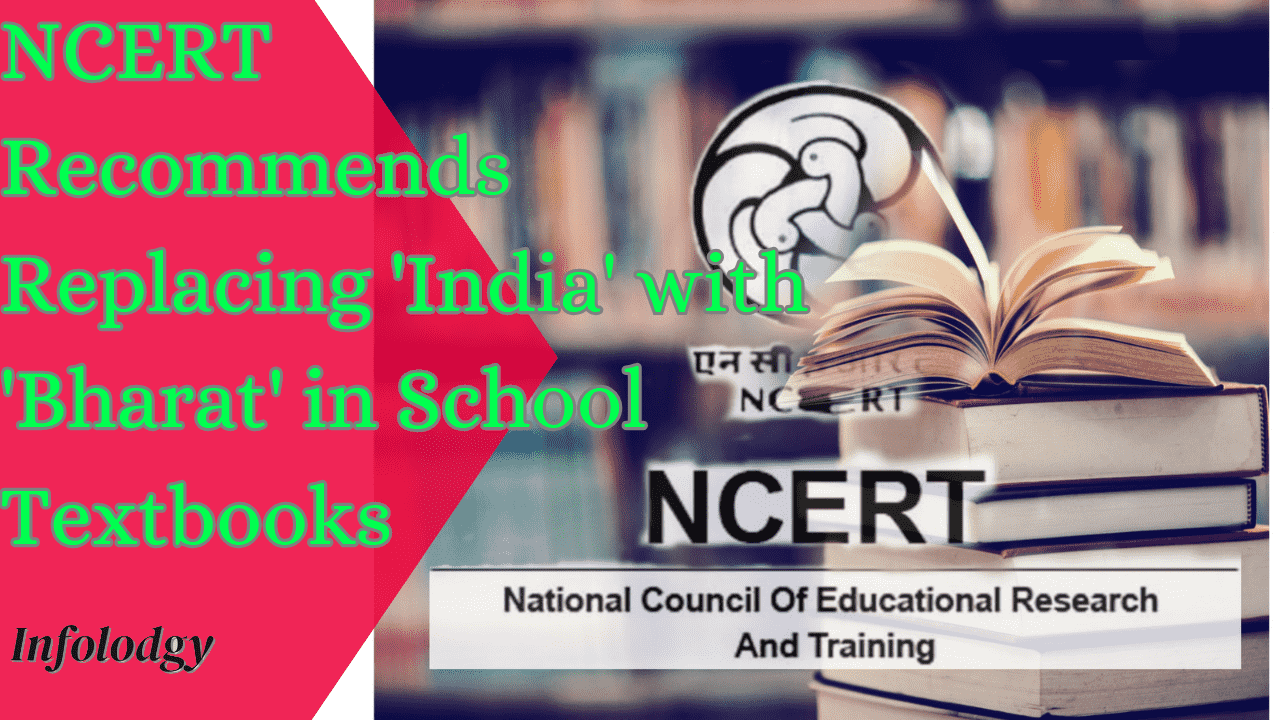NCERT Panel Recommends Replacing India with Bharat in School Textbooks. See the article for a detailed study.
A remarkable proposal has emerged from a panel on social sciences, convened by the National Council of Educational Research and Training (NCERT). On October 25, the committee’s chairperson, CI Isaac, disclosed that the panel, consisting of seven high-level members, has unanimously suggested replacing the term ‘India’ with ‘Bharat’ in school textbooks. This initiative has sparked nationwide conversations regarding the historical significance and contextual relevance of these names.
Historical Rationale
One of the central pillars of this proposal lies in its historical foundation. According to CI Isaac, the widespread use of the term ‘India’ only began after the establishment of the East India Company and the pivotal Battle of Plassey in 1757. In sharp contrast, the name ‘Bharat’ boasts a lineage dating back over 5,000 years. This historical backdrop has led the expert panel to advocate for the use of ‘Bharat’ in educational materials for students across all grade levels.
Constitutional Citation
The Indian Constitution provides support for the recommendation as well. The Constitution clearly specifies in Article 1(1) that “India, that is Bharat, shall be a Union of States.” This constitutional reference to both names highlights the dual identity and historical significance that the panel has taken into account.
NCERT’s Response
However, in the wake of this proposal’s media exposure, NCERT has issued a clarification, asserting that the Council has not yet officially endorsed such a decision. The development of new syllabi and textbooks remains an ongoing process, with domain experts actively participating. Hence, it is deemed premature to make conclusive remarks on this matter at this stage.
Impact of the G20 Meeting
Notably, this idea is being made shortly after the Indian government promoted the term “Bharat” at the September G20 summit. The G20 presidential dinner was explicitly mentioned in the invitations as being hosted by the “President of Bharat.” Furthermore, at the G20 heads of state conference, the nameplate in front of Prime Minister Narendra Modi conspicuously referred to “Bharat” rather than “India.”
Educational Reforms
Beyond the alteration of nomenclature, the expert panel has also recommended broader educational reforms. They propose introducing the Indian Knowledge System (IKS) into the curriculum for all subjects. Additionally, the panel suggests substituting ‘ancient history’ with ‘classical history’ in history textbooks. This initiative aims to rectify the historically divisive approach of colonial British rulers, who categorized Indian history into three phases—ancient, medieval, and modern, inaccurately characterizing the ancient Indian era as a period marked by obscurity and a lack of scientific progress.
Conclusion
The proposition to replace ‘India’ with ‘Bharat’ in school textbooks marks a significant turning point, aligning historical nomenclature with India’s rich and multifaceted heritage. While this recommendation has sparked lively debates and discussions nationwide, it is essential to remember that the official decision is yet to be confirmed by NCERT. As the development of new syllabi and textbooks progresses, India’s educational landscape may experience transformative changes in the foreseeable future.

